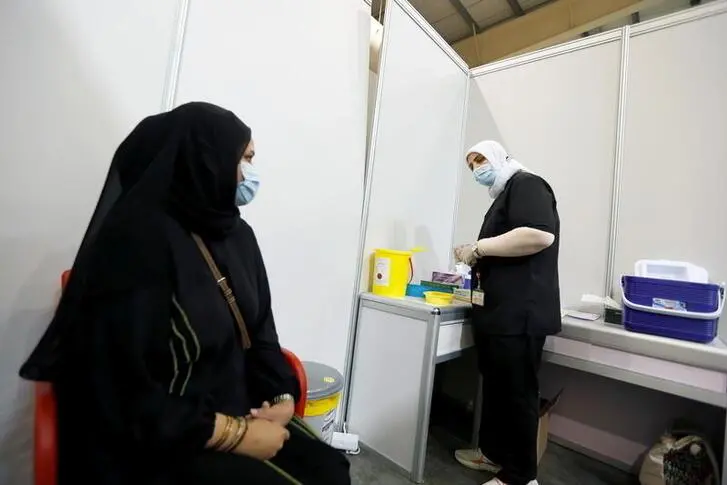PHOTO
Bahrain is making rapid strides in its fight against the coronavirus (Covid-19) with the country vaccinating almost 100,000 people in less than a month.
The country started rolling out free vaccines to people as part of a national campaign on December 17 – and until last night more than 92,000 have been inoculated.
The shots are being administered from 27 health centres and the King Hamad University Hospital (KHUH) in Bahrain.
Citizens and residents were initially given the Chinese Sinopharm – the vaccine on which Bahrain successfully conducted a phase three trial on 7,700 volunteers – and later Pfizer/BioNTech was also added as a choice.
Senior infectious disease and critical care medicine expert Dr Tariq Al Mosawi praised the new 100,000 milestone.
“Bahrain and the entire GCC have done wonderfully well since the beginning in terms of combating the virus with a well-studied strategy and no less was expected in the phase of the vaccine as well,” the Bahraini doctor told the GDN.
“The national campaign has been a success largely due to the awareness of people,” he said.
However, Dr Al Mosawi urged residents not to “distract” the campaign by spreading negative and unfounded information on the vaccine.
“You have the right to choose not to inoculate, but it is not appropriate to advocate against vaccines with minimal knowledge and insignificant evidence,” he said.
“By doing so, you are distracting a medical team that is working on something crucial.
“We should not talk based on social media claims, without any evidence.
“People who are promoting the (vaccination) campaign are doing it based on studies and analyses. They are recommending it based on evidence and there is no comparison between the two categories – professionals advocating vaccine based on research and the others.”
The intensive care head at Royal Bahrain Hospital (RBH) also urged people to be wary and not to take vaccination as an excuse to avoid health guidelines.
There are two objectives for vaccination – one is individual immunity which reduces a person’s chances of getting the disease on exposure, he said.
“They could get away with mild symptoms, meaning without complications.
“The second objective is to provide immunity to a group of people with a target of 70pc of the population (herd immunity) which aims to break cross transmission.
“Healthcare workers are closely watching the number of cases and its severity, and until they decide otherwise, it is best not to relax or else the campaign will fail.”
Meanwhile, Health Ministry on Sunday announced that the polymerase chain reaction (PCR) test for Covid-19 will not be available for entrants at King Fahad Causeway, starting from Sunday.
Instead, negative PCR test results up to 72 hours prior to arrival in Bahrain will continue to be accepted, it said, citing the National Medical Taskforce’s updates on travel procedures for arrivals into Bahrain via the causeway.
The result should be made available either in print or on mobile health applications like BeAware, Tatamman, Sehhaty and Alhusen.
© Copyright 2020 www.gdnonline.com
Copyright 2021 Al Hilal Publishing and Marketing Group Provided by SyndiGate Media Inc. (Syndigate.info).





















